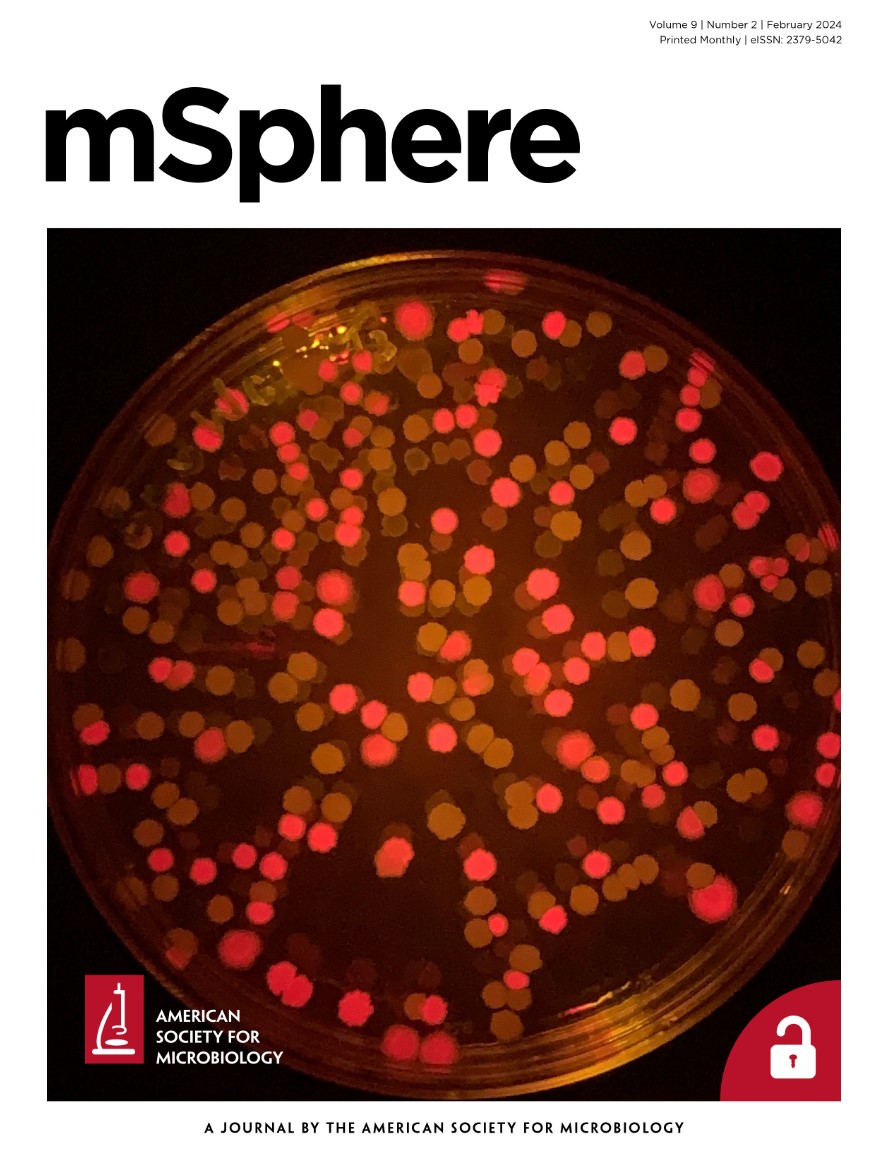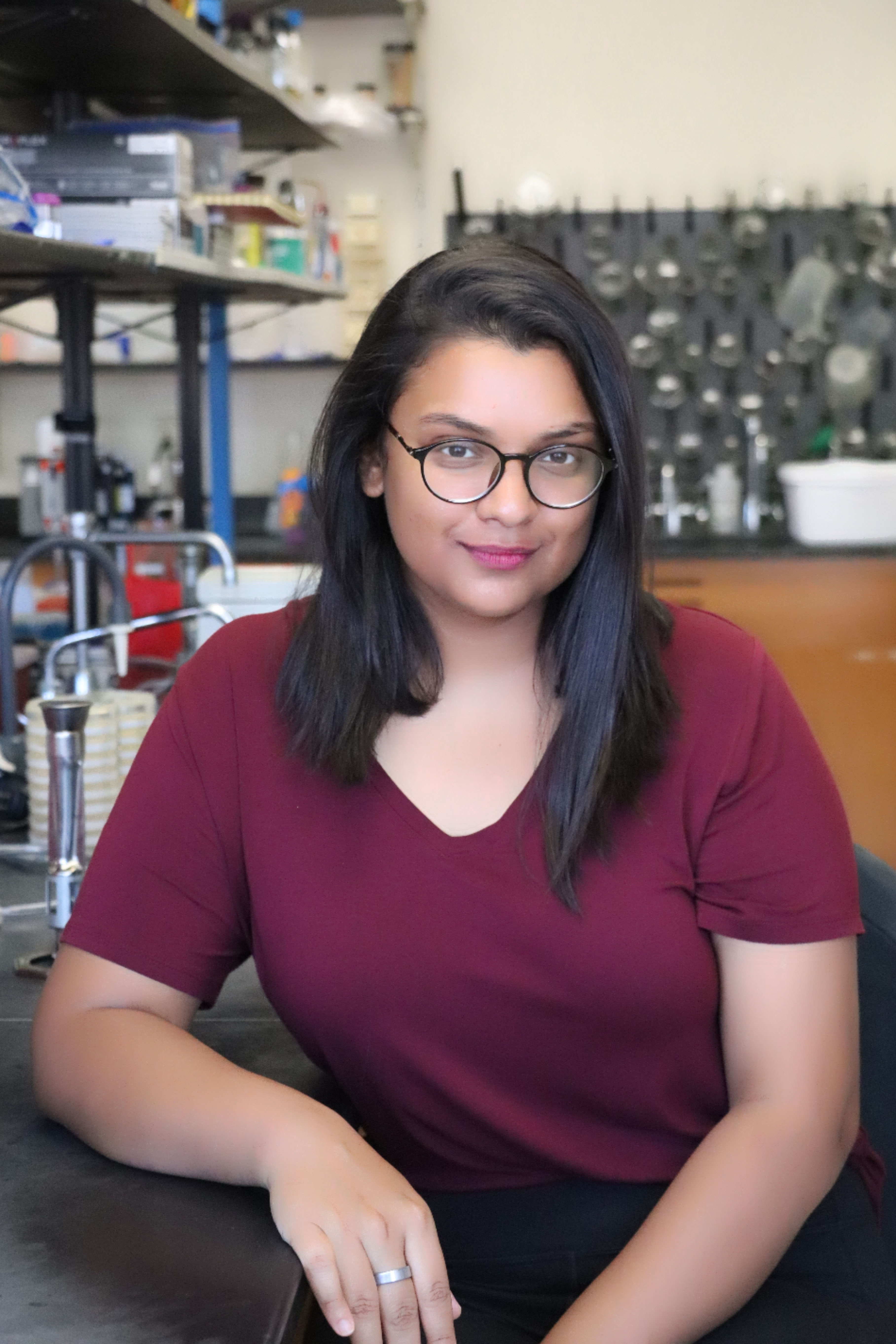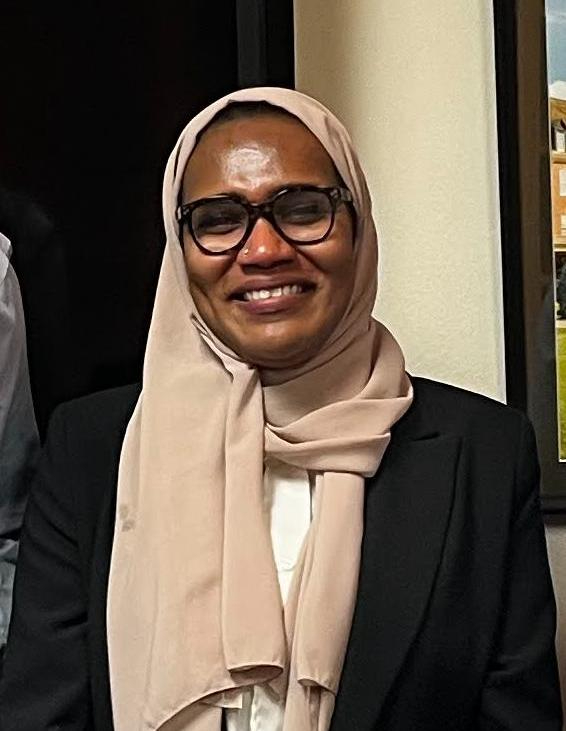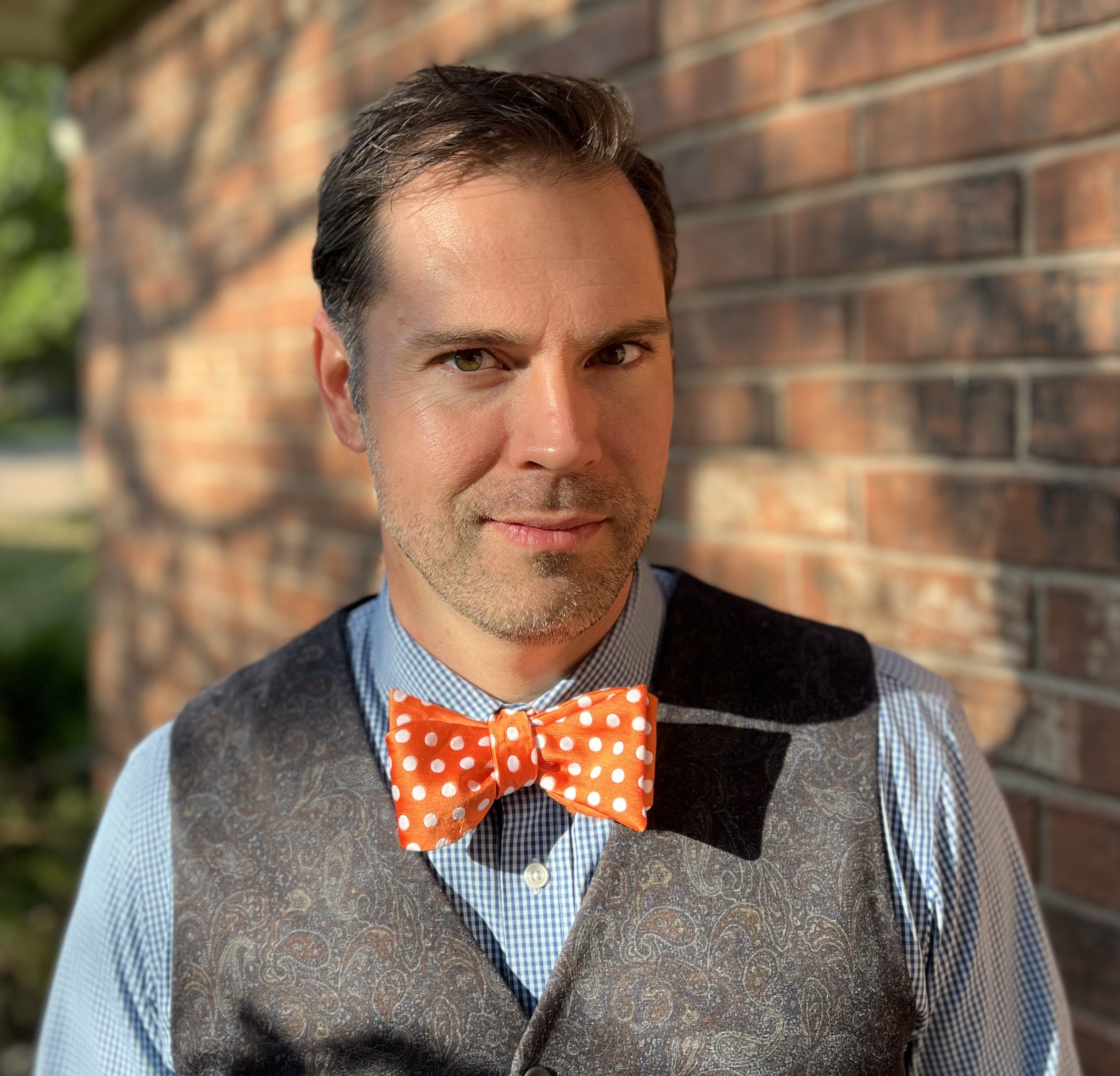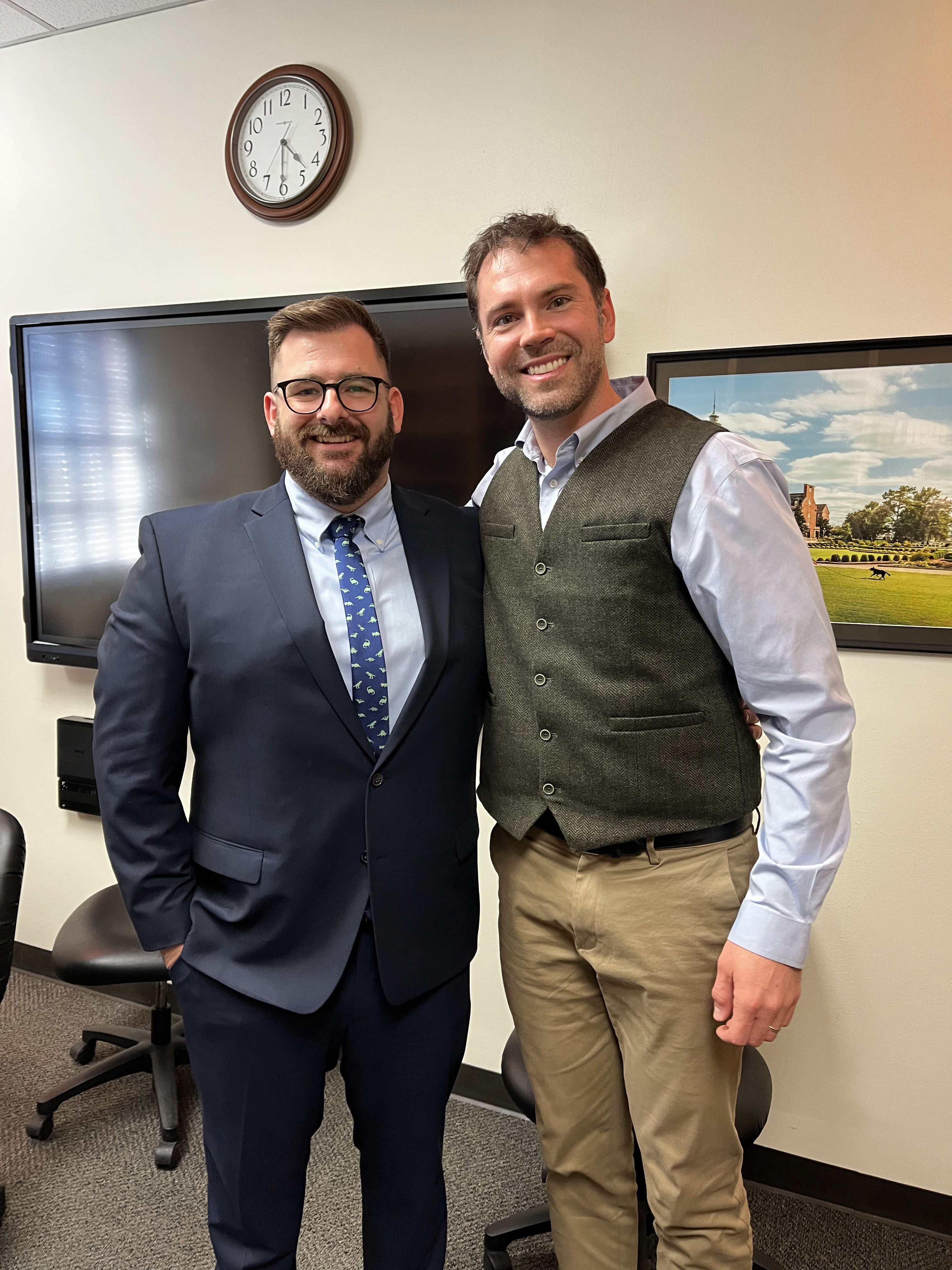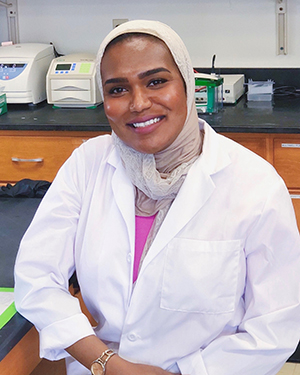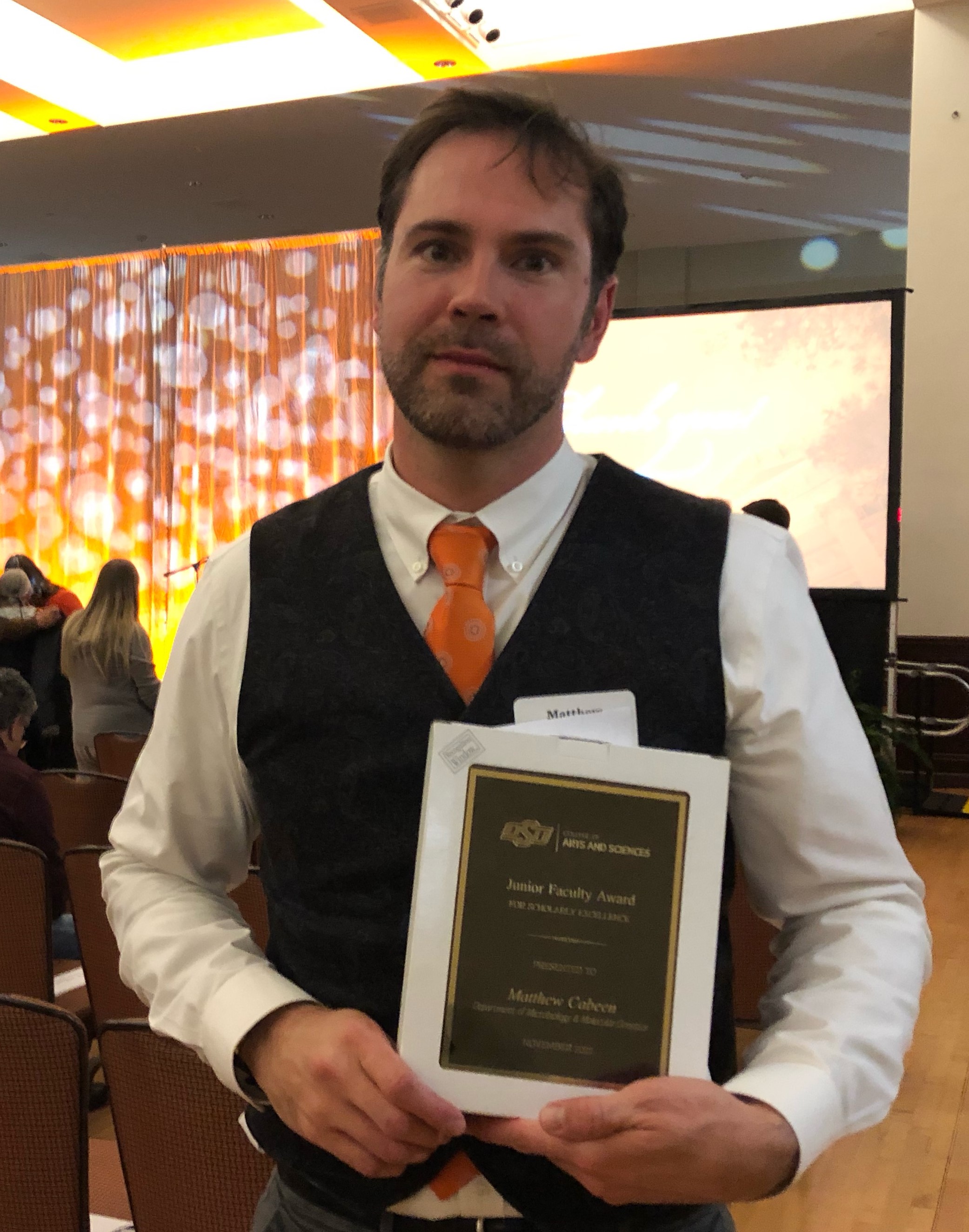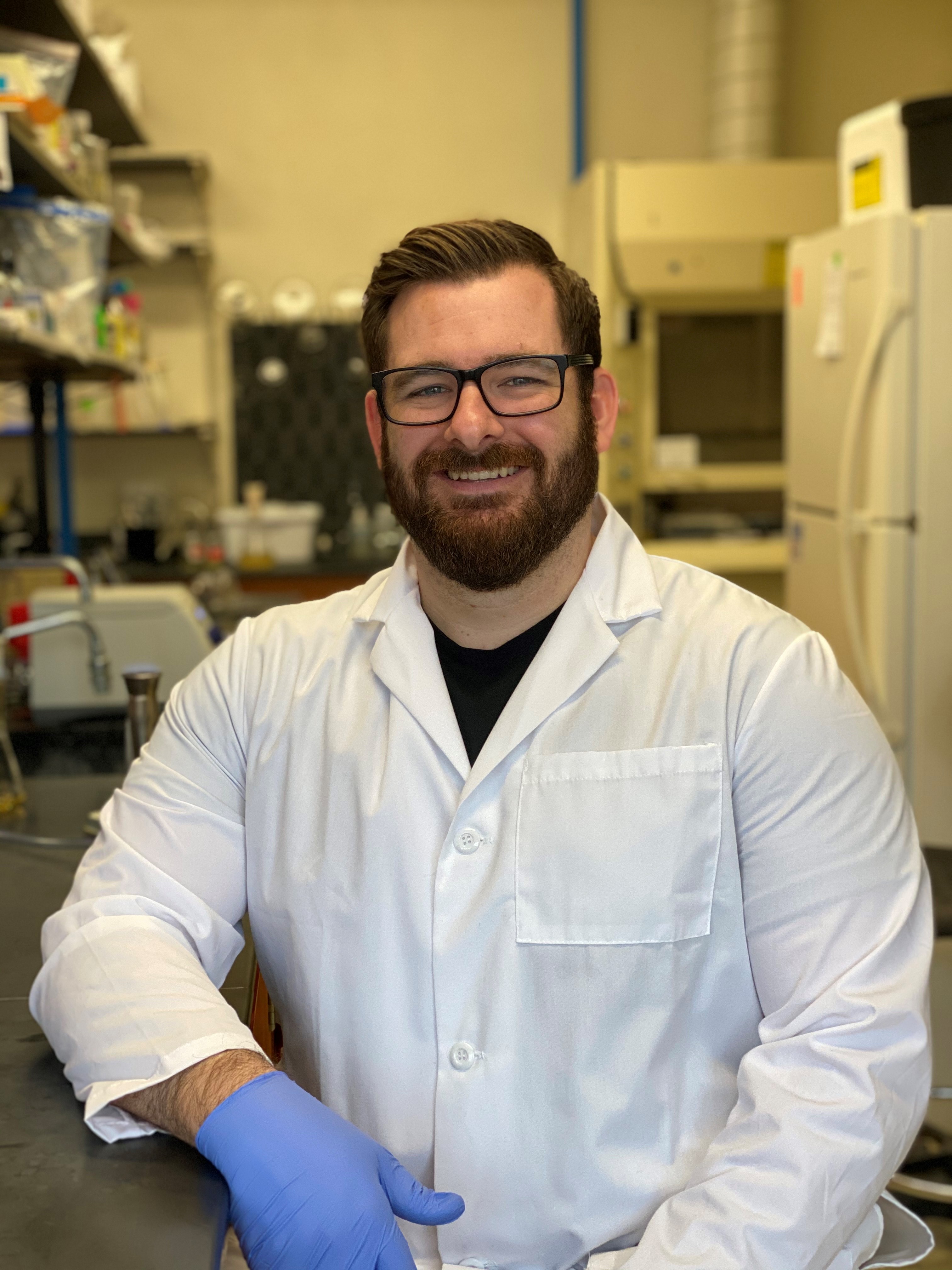Former undergraduate Sid Bush is the lead author on primarily undergraduate research from the lab—a collaboration among 8 current and former undergraduates and former grad student Chris Hamm. This team did a huge amount of work over the years to show that different strains of B. subtilis with different complements of RsbR paralogs in the stressosome display differing fitness in co-culture under different stress conditions. A primary finding of the paper is that RsbRA-only cells, whose sigma-B response resembles the wild type, outcompete other single-RsbR strains under ethanol stress but have a fitness deficit under NaCl stress, while the opposite is true of RsbRD-only cells. The paper is available in ASM's open-access mSphere journal at https://doi.org/10.1128/msphere.00719-23. An image from their paper also made the cover for that issue of mSphere! Congratulations to Sid, Shelby, Nick, Chris, Madeline, Sarah, Emily, AnaLisa, Nick, and Jake!
News
Pan publishes lipase work
PhD candidate Somalisa Pan published a principal project of her PhD, investigating a putative lipase protein that she discovered in collaboration with the lab's first-ever undergraduate researcher, Julia Terrell, and characterized with the help of recently graduated undergraduate, Mary Erdmann. The protein, previously named PA14_04030 but renamed BipL (for biofilm-impacting phospholipase), was originally uncovered by Soma and Julia as restoring colony wrinkling to a smooth colony when the bipL gene was deleted. Subsequent experiments showed that BipL harbors a conserved lipase signature motif, and that mutation of the active-site Ser residue phenocopies the bipL deletion. Congratulations Soma, Mary, and Julia! The paper is available in ASM's open-access mSphere journal at https://doi.org/10.1128/msphere.00374-23.
Congratulations Dr. Yahya!
PhD candidate Amal Yahya successfully defended her thesis on July 3, 2023 and now is Dr. Yahya! Dr. Yahya will return this summer to her native Saudi Arabia, where she will become an assistant professor near Riyadh and teach clinical technicians. We are so proud of how far she has come and will miss her presence in the lab.
Cabeen promoted with tenure
Dr. Cabeen was promoted to Associate Professor with Tenure on July 1, 2023, together with his colleague Dr. Karen Wozniak down the hall. Congratulations!
Underhill and Pan publish Nitro-PTS work
Former postdoc Dr. Simon Underhill and PhD candidate Somalisa Pan published a big project in which they examined the nitrogen-related phosphotransfer system (Nitro-PTS) in P. aeruginosa in unprecedented detail. Mary Erdmann, a talented undergraduate working with Soma, was also a coauthor. The team showed that unphosphorylated PtsN, which was previously implicated in lowering biofilm formation, is not sufficient on its own to reduce biofilm formation. They also showed that PtsN can be phosphorylated by a different enzyme I, FruB, but only in the absence of PtsO. PtsP also appears to be able to directly phosphorylate PtsN. Finally, using transcriptomics, they discover new systems that appear to be regulated by the Nitro-PTS, including production of a siderophore (pyoverdine) and express of Type III secretion. Congratulations Simon, Soma, and Mary! The paper is available in the Journal of Bacteriology at https://doi.org/10.1128/jb.00453-22 (may require a journal subscription).
Congratulations Dr. Hamm!
PhD candidate Chris Hamm successfully defended his thesis on April 12, 2023 and now is Dr. Hamm! The good doctor has a great postdoc lined up at the University of Alabama-Birmingham, where he has also been awarded a competitive, NIH-funded MERIT fellowship that will also give him the opportunity to design a course and get teaching experience in parallel with his research. Chris is the first PhD to graduate from the Cabeen lab--we are so proud of you, Chris! He will begin his postdoc in July 2023.
Amal Yahya publishes biofilm work
PhD candidate Amal Yahya combined a huge amout of genetic work and phenotypic assays to explore new modes of biofilm regulation in P. aeruginosa. She and her undergraduate mentees Sophie and William showed that a number of genes that were differentially regulated in a deletion of 16550 (which shows decreased biofilm formation) largely do not impact biofilm formation but do impact motility. She also unexpectedly uncovered RecA as a biofilm-impacting gene and showed that both functions of RecA (SOS activation and recombination) appear important for wild-type biofilm levels. This work is published in Microbiollogy Spectrum from ASM and is available in open-access online at https://doi.org/10.1128/spectrum.03774-22.
Cabeen wins CAS Junior Faculty Award for Scholarly Excellence
Dr. Cabeen took home the 2022 College of Arts and Sciences Junior Faculty Award for Scholarly Excellence in the Sciences subdivision. Each year, one award is given to junior faculty (between years 3 and 7) in each of the three subdivisions of CAS: Arts/Humanities, Social/Behavioral Sciences, and Sciences. The award requires off-campus peer references and includes a plaque and cash award. Congratulations Dr. Cabeen!
Chris Hamm publishes stressosome work
PhD candidate Chris Hamm brings a huge amount of microfluidics-based experimental work to fruition in a new publication about how different RsbR proteins influence the sigma-B response mediated by the stressosome in different stressors. He shows that RsbRA always shows a transient response, irrespective of stressor identity, but that other RsbR paralogs show different responses to different stressors. Hybrid fusion proteins show that both halves of RsbRA are required for its characteristic transient response. He was assisted in this work by undergraduate Dax Butler. Their work is in press at mBio as of November 2022. Congratulations, gentlemen!

